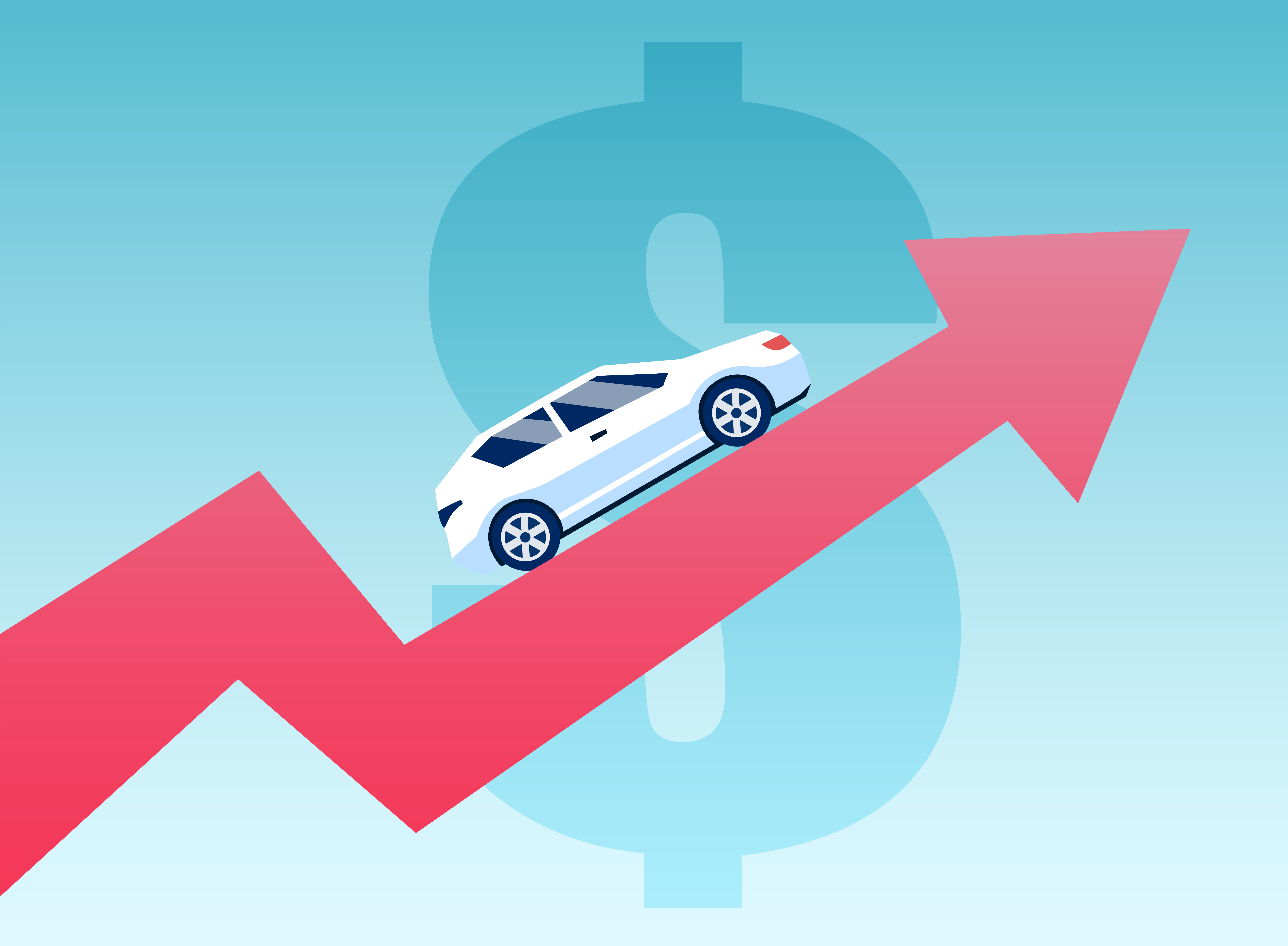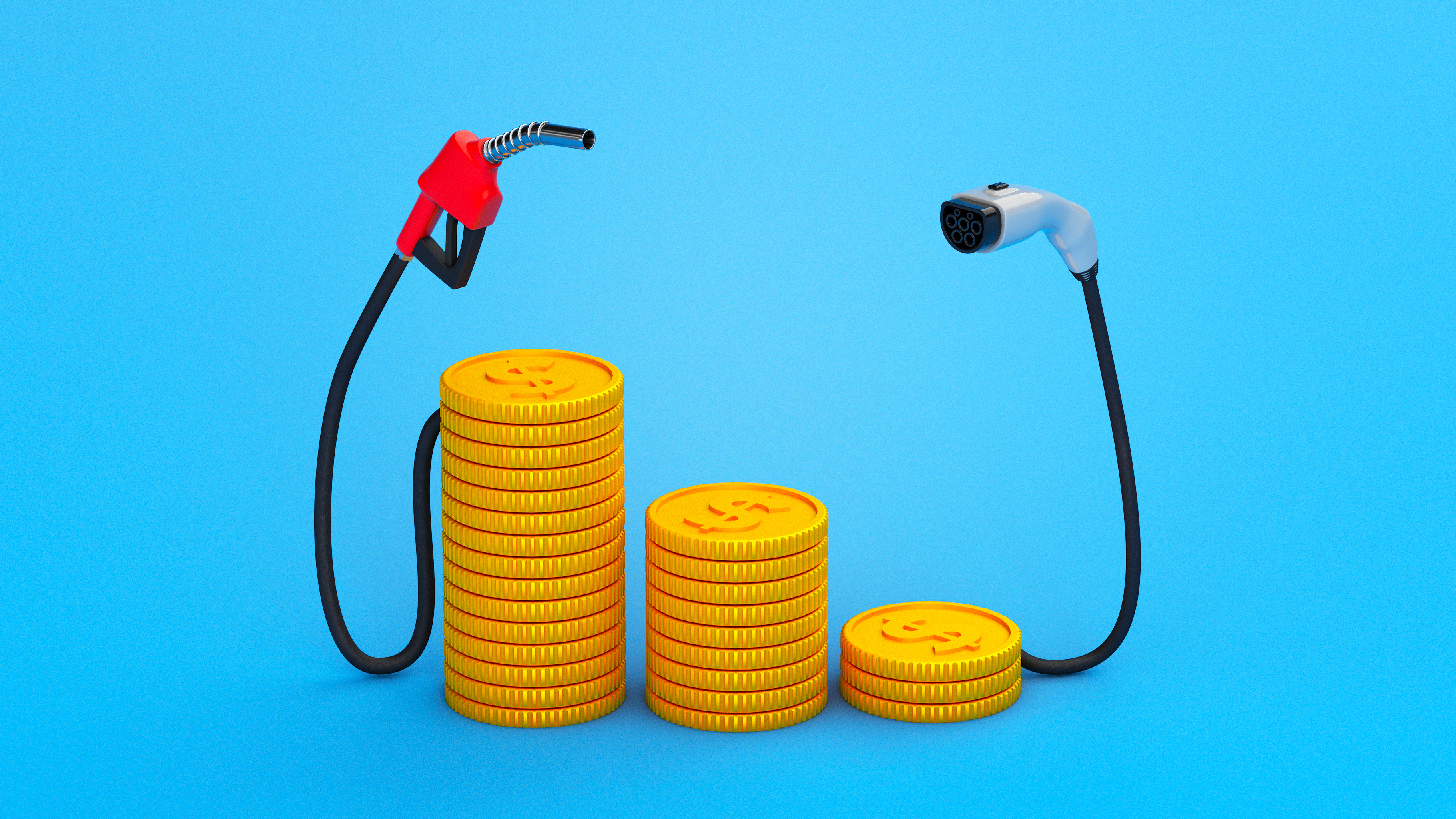Buying a new car: Why are prices so high?
How can you purchase a new car without pressing your budget to the limit?


A free daily email with the biggest news stories of the day – and the best features from TheWeek.com
You are now subscribed
Your newsletter sign-up was successful
If you've looked into buying a new car recently, you may have been shocked by the cost. According to USA Today, the number of buyers paying $1,000 or more each month to finance a new vehicle recently reached an all-time high, with nearly roughly 17.1% of new car buyers facing monthly payments that steep. For comparison, that figure sat at 4.3% prior to the pandemic and the shortage of new cars caused by the lack of semiconductor chips.
Now, as of the second quarter of 2023, the average monthly car payment sits at a hefty $733, USA Today reported based on data from Edmunds. To make matters even worse, the average annual percentage rate (APR) on car loans keeps getting higher, too.
Why are car prices so high right now?
Sticker shock for new car buyers is largely attributable to high interest rates and high borrowing costs. "The double whammy of relentlessly high vehicle pricing and daunting borrowing costs is presenting significant challenges for shoppers in today's car market. The Federal Reserve's recent pause in interest rate hikes, unfortunately, didn't offer much relief for consumers, and hints at further raises later this year mean auto loan rates could even continue to increase," Ivan Drury, Edmunds' director of insights, told USA Today.
The Week
Escape your echo chamber. Get the facts behind the news, plus analysis from multiple perspectives.

Sign up for The Week's Free Newsletters
From our morning news briefing to a weekly Good News Newsletter, get the best of The Week delivered directly to your inbox.
From our morning news briefing to a weekly Good News Newsletter, get the best of The Week delivered directly to your inbox.
While the Fed is mostly to thank for increasingly high borrowing costs, new car prices are due to a shortage of new vehicles. The start of the current shortage can be traced back to the semiconductor chip shortage that began two years ago. But just as that started to improve, allowing manufacturing to get back on track, automakers ran into another issue: transporting vehicles. USA Today explains that right now, "the railroads do not have enough rail cars to transport finished cars from the factories to the dealerships, exacerbating the problem of short inventory and high prices."
What are your options for financing a new car purchase?
With APRs at an average of 7.1% right now — which USA Today noted is "the highest APR since the fourth quarter in 2007" — you might be wondering what your options are for covering a new vehicle purchase. Obviously, the easiest way to save on interest is to purchase a car outright, but this understandably isn't an option for many. Your choices for financing your new car purchase include:
- Through the dealership: Where financing through a dealership wins out is convenience, per Car and Driver. Both your purchase and the financing will be done through the dealership, and you'll have someone available to guide you through the application process and answer questions that might come up. However, where a dealership might not be ideal is when it comes to loan terms: Car and Driver warns that "the dealer may not be able to offer you the best loan terms for your situation," so you'll want to shop around before agreeing to an offer.
- With a bank, credit union, or online lender: It's also possible to get a loan through a bank, credit union, or online lender When you go this route, you can get pre-qualification, which Nerdwallet explains "gives you an idea of the rate you might qualify for without affecting your credit score." While you'll still have to go through the formal approval process (including a hard credit check), this will give you a sense of which lender is offering the most competitive rate.
- From a friend or family member: If you have anyone in your life generous to do so, another option is to ask someone you know, such as your parents, for an auto loan. Per Car and Driver, this will translate to "lower interest or interest-free payments," but it also has the potential to "put a strain on these relationships, so be sure you can pay them back before agreeing to borrow money."
How can you get into a new car without breaking the bank?
Sometimes getting a new car can't wait. And with the cost of purchasing one only expected to get higher, waiting won't necessarily save you money either. So, how can you purchase a new car without pressing your budget to the limit? Here are some tips to keep in mind:
- Do your research before heading to the dealership. Before you show up ready to buy a car, make sure you've done your homework and have an idea of the average price range for the vehicle you're interested in, as well as any available discounts or perks that might be offered. You might also consider less popular models within your price range that still fit your needs. "The best way to spend money wisely is to look for something that you know isn't super popular," Brian Moody, executive editor for Autotrader and Kelley Blue Book, told CNBC Select.
- Look into the trade-in value of your current car. If you have a car already, consider capitalizing on that car's value to save money on your new car. Car and Driver highlights that "[s]ome dealerships offer trade-in deals where they'll buy your car and apply the purchase price toward the down payment on a new or used car." Further, Drury told USA Today that right now, "trade-in values remain elevated compared to pre-pandemic times," making it worthwhile to "shop around to ensure you get top dollar for the asset you own."
- Shop around and don't hesitate to negotiate. Shopping around applies to a number of parts of the car-buying process, including when it comes to different dealerships, lenders, and car insurance providers. And according to CNBC Select, "[i]t always pays to shop around and negotiate with your lender and dealer — not just when it comes to the purchase price, but the interest rate as well."
Becca Stanek has worked as an editor and writer in the personal finance space since 2017. She has previously served as the managing editor for investing and savings content at LendingTree, an editor at SmartAsset and a staff writer for The Week.
A free daily email with the biggest news stories of the day – and the best features from TheWeek.com
Becca Stanek has worked as an editor and writer in the personal finance space since 2017. She previously served as a deputy editor and later a managing editor overseeing investing and savings content at LendingTree and as an editor at the financial startup SmartAsset, where she focused on retirement- and financial-adviser-related content. Before that, Becca was a staff writer at The Week, primarily contributing to Speed Reads.
-
 The ‘ravenous’ demand for Cornish minerals
The ‘ravenous’ demand for Cornish mineralsUnder the Radar Growing need for critical minerals to power tech has intensified ‘appetite’ for lithium, which could be a ‘huge boon’ for local economy
-
 Why are election experts taking Trump’s midterm threats seriously?
Why are election experts taking Trump’s midterm threats seriously?IN THE SPOTLIGHT As the president muses about polling place deployments and a centralized electoral system aimed at one-party control, lawmakers are taking this administration at its word
-
 ‘Restaurateurs have become millionaires’
‘Restaurateurs have become millionaires’Instant Opinion Opinion, comment and editorials of the day
-
 How your household budget could look in 2026
How your household budget could look in 2026The Explainer The government is trying to balance the nation’s books but energy bills and the cost of food could impact your finances
-
 What is a bubble? Understanding the financial term.
What is a bubble? Understanding the financial term.the explainer An AI bubble burst could be looming
-
 The FIRE movement catches on as people want to retire early
The FIRE movement catches on as people want to retire earlyIn the spotlight Many are taking steps to leave the workforce sooner than usual
-
 Who wants to be a millionaire? The dark side of lottery wins
Who wants to be a millionaire? The dark side of lottery winsIn The Spotlight Is hitting the jackpot a dream come true or actually a nightmare?
-
 How can you find a financial adviser you trust?
How can you find a financial adviser you trust?the explainer Four ways to detect professionals who will act in your best interest
-
 What should you consider when choosing a financial adviser?
What should you consider when choosing a financial adviser?The Explainer The right person can be a big help with financial planning, investing, taxes and more
-
 What Biden's IRA means for EV tax credits: 2024 updates
What Biden's IRA means for EV tax credits: 2024 updatesThe Explainer Which cars are eligible and how much money can owners save?
-
 How to ensure you don't outlive your retirement savings
How to ensure you don't outlive your retirement savingsThe Explainer Your golden years should be enjoyed. Don't let finances get in the way.
